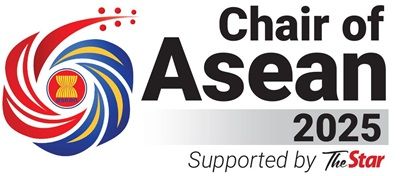KUALA LUMPUR: The Asean Foreign Ministers’ Meeting (AMM) has welcomed efforts to establish a cessation of violence in Gaza as part of a broader international initiative, while urging continued neutrality and unity amid rising global rivalries.
 Foreign Minister Datuk Seri Mohamad Hasan, who chaired the AMM, said the regional bloc must remain a “beacon of neutrality and a safe harbour” amid intensifying geopolitical tensions.
Foreign Minister Datuk Seri Mohamad Hasan, who chaired the AMM, said the regional bloc must remain a “beacon of neutrality and a safe harbour” amid intensifying geopolitical tensions.
“For two years, the world has witnessed the unspeakable suffering of Palestinians in Gaza – marked by devastating loss of life, mass displacement, and the erosion of hope and dignity,” he said in his opening remarks on Saturday (Oct 25).
“Asean welcomes efforts to establish a cessation of violence in Gaza as the first phase of President Trump’s Comprehensive Plan to End the Gaza Conflict.
“This marks an important step forward, and we hope it will ultimately lead to the realisation of the Palestinian people’s right to self-determination and the establishment of a sovereign and independent state of Palestine.”
Noting the turbulence in global politics, Mohamad warned that growing divisions worldwide would “cast a long shadow” over the region.
“As the international landscape becomes dominated by contestation rather than consensus, and division rather than dialogue, Asean finds itself at a crossroads.
“Our space for neutrality and centrality is narrowing – particularly in trade, technology and regional security. We must act as the speakers, not the spoken for,” he said.
Turning to regional issues, Mohamad reaffirmed Asean’s commitment to resolving the Myanmar crisis through dialogue and humanitarian action, stressing that “progress must be pursued with care, not forced”.
“In a situation marked by decades of mistrust, reconciliation will not happen overnight.
“It must be a process led by the people of Myanmar and supported by Asean – a path grounded in trust, not coercion,” he said.
He added that addressing the crisis requires “a whole-of-region commitment to peacebuilding”, citing Asean’s collective response to the deadly earthquake in Myanmar earlier this year.
On the South China Sea, Mohamad said Asean must adopt an “open, but firm and consolidated engagement” approach in safeguarding regional peace.
“As Asean country coordinator for China, Malaysia remains committed to advocating our collective interests, especially in advancing the Code of Conduct in the South China Sea,” he said, urging all parties to “embrace partnership, refrain from escalation, and respect international law.”
“As chair, Malaysia has been humbled by the trust placed in us,” said Mohamad, expressing confidence that Asean’s unity and diversity will continue to be our greatest source of strength.”
Economically, Mohamad said Asean’s collective vision remains strong despite global headwinds.
“The Regional Comprehensive Economic Partnership (RCEP) and the Asean Digital Economy Framework Agreement (Defa) continue to deepen integration, strengthen supply chains, and attract global investment,” he said.
He added that Asean also expanded ties with India, Australia, the European Union, and the Gulf Cooperation Council, which “enhanced the region’s collective strategic autonomy.”